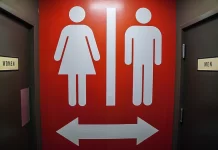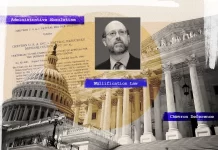The indictment of former President Donald Trump for holding military documents and obstructing the government from taking them is built on a novel legal theory that has multiple weaknesses, according to several lawyers and other experts.
The case has been portrayed in the media as being about Trump’s retaining classified documents from his presidency. However, the charges sidestep that issue and instead use a clause in the Espionage Act that criminalizes a failure to hand over national defense information. The indictment further alleges that Trump and staffer Waltine Nauta hid some documents when the government demanded them through a subpoena.
The alleged Espionage Act violations impose a high burden of proof and raise the question of whether the statute should have been applied to begin with and, if not, whether the underlying investigation should serve as a basis for obstruction charges, some lawyers told The Epoch Times.
“The key legal issue here is the interplay between the Presidential Records Act and the Espionage Act,” said Will Scharf, a former federal prosecutor.
The Presidential Records Act of 1978 stipulates that after a president leaves office, the National Archive and Records Administration (NARA) takes custody of all his official records.
The law allows former presidents to keep personal documents such as “diaries, journals, or other personal notes” not used for government business.
“If a former President or Vice President finds Presidential records among personal materials, he or she is expected to contact NARA in a timely manner to secure the transfer of those Presidential records to NARA,” NARA’s website states.
However, the Presidential Records Act isn’t a criminal statute. If a former president refuses to turn over some documents or claims obviously official documents as personal, the worst he could face is a civil lawsuit.
There’s little case law on such matters. In 2012, Judicial Watch tried to force former President Bill Clinton to turn over dozens of interview tapes he kept from his presidency. Clinton claimed the tapes were personal and the court sided with him. Judge Amy Berman Jackson, an appointee of President Barack Obama, went so far as to argue that the court had no way to second-guess a president’s assertion of what is and isn’t personal.
By Petr Svab







![It’s amazing . . . just how filthy this case [against TRUMP] is!](https://www.thethinkingconservative.com/wp-content/uploads/2024/04/maxresdefault-256-218x150.jpg)




































